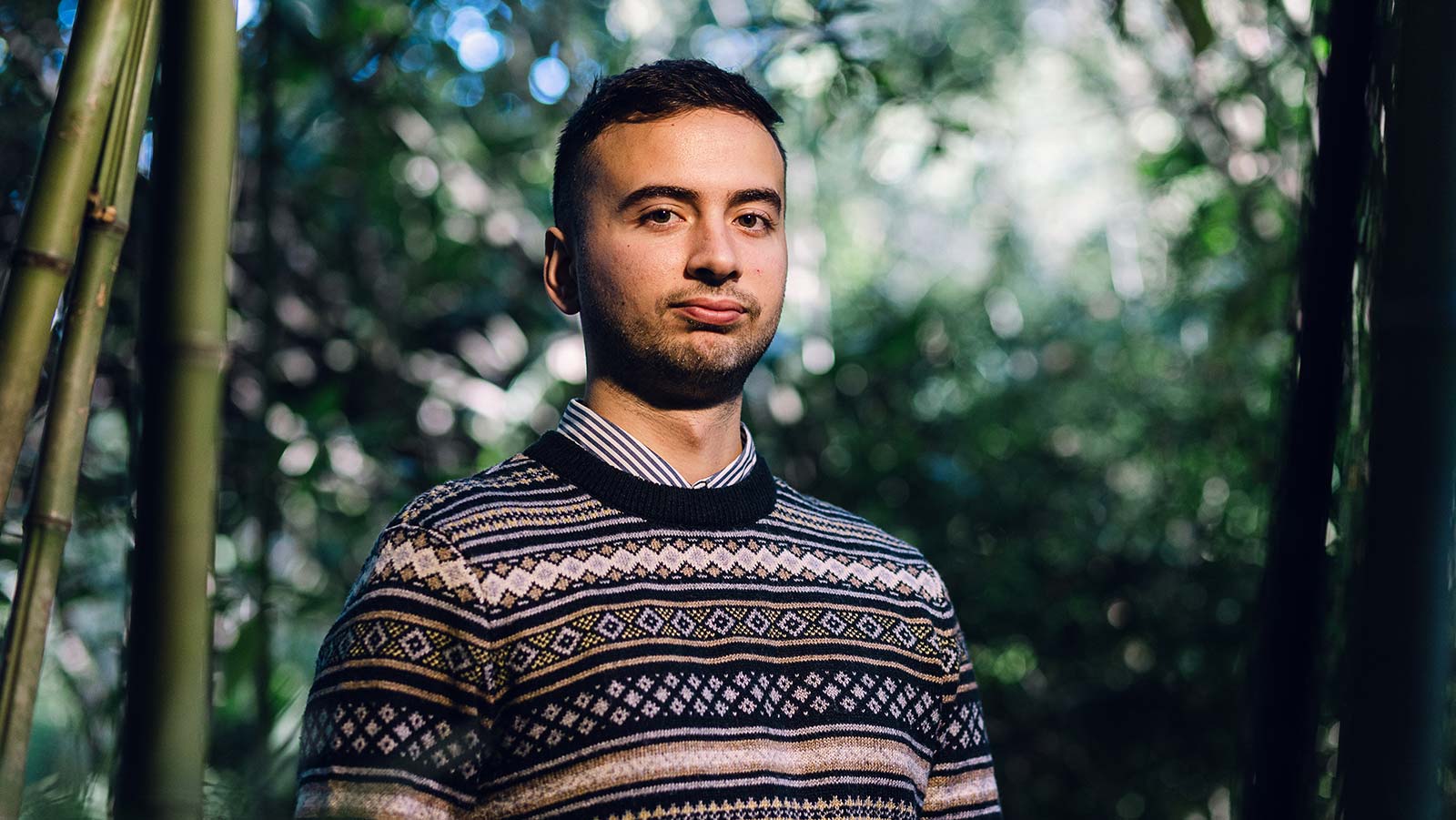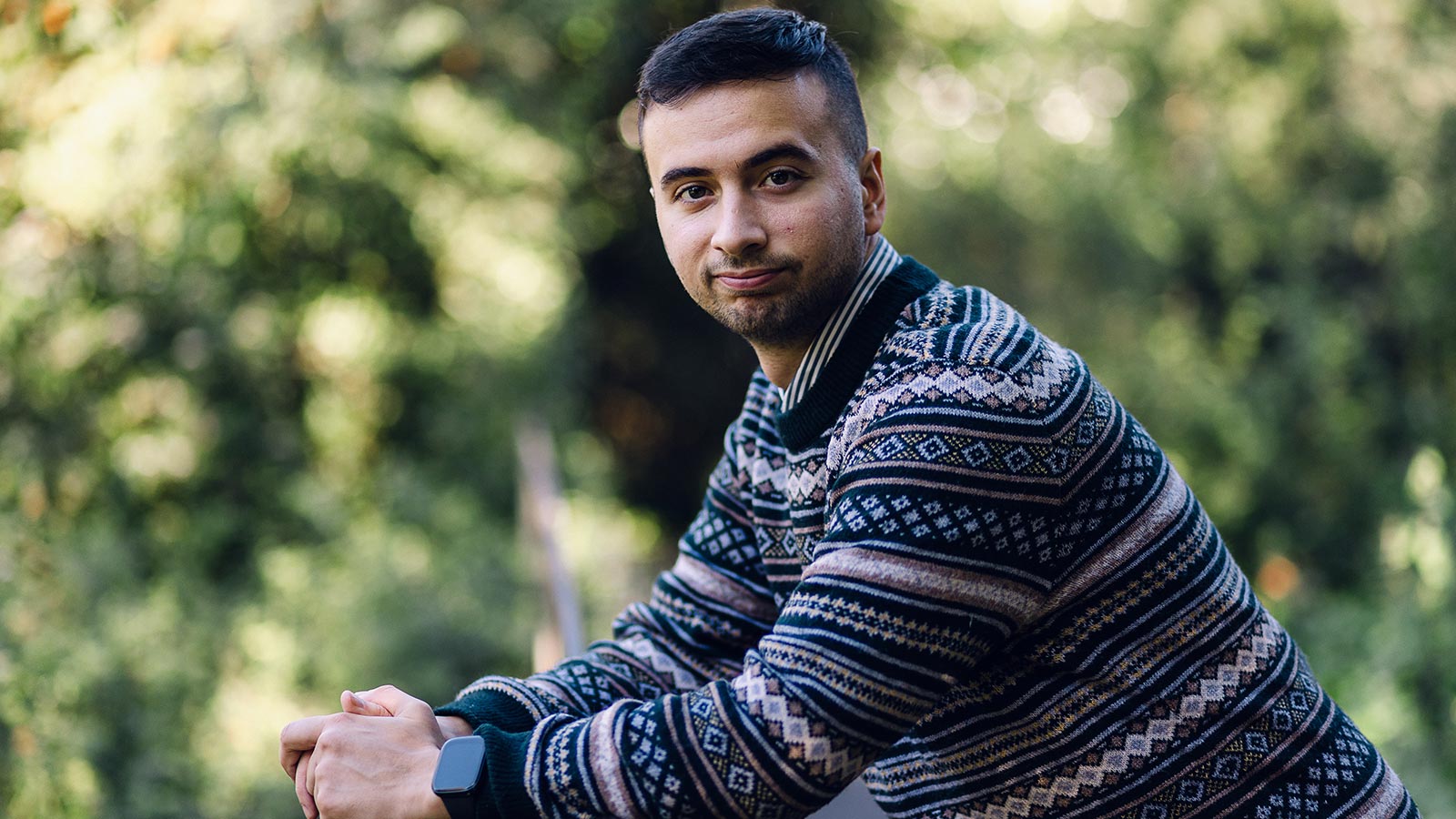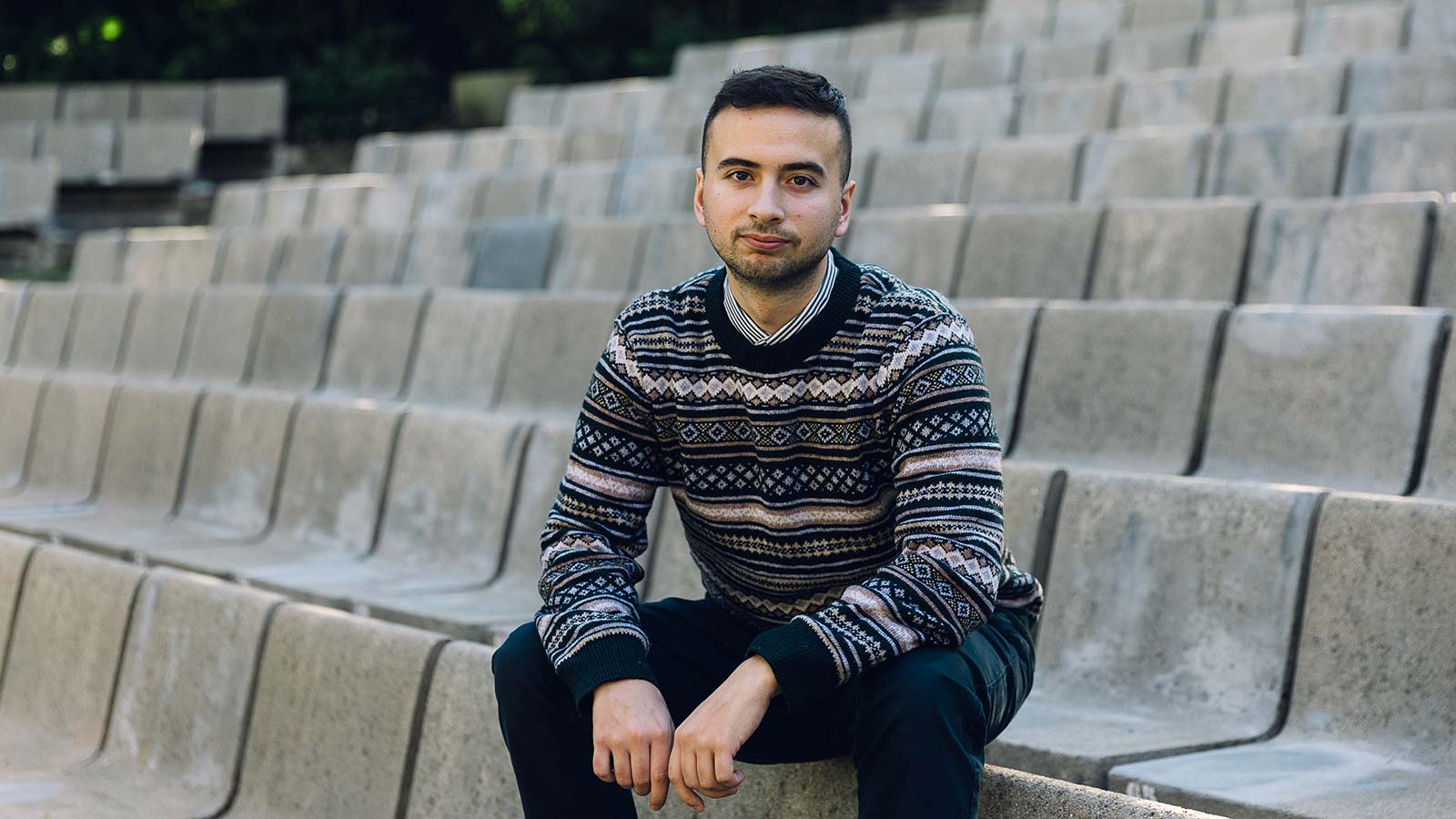Ricardo Fitas: “Now I’m in the position to give other people a chance”
Born in Esposende, Ricardo studied for an integrated master’s degree in Mechanical Engineering at the Faculty of Engineering of the University of Porto. With the support of the Gulbenkian Merit Grant, he did a year of Erasmus in Germany, where he began what seems destined to be a long and promising academic career.
He recently contacted the Gulbenkian Foundation’s Grants department to give back what he has received and “be able to help other students also have access to these opportunities”. During his short visit to his home country, we had the chance to talk to this determined and non-conformist grantee.
You have a degree in Mechanical Engineering. How did you become interested in this area?
I’ve always been interested in maths, but since before secondary school I’d imagined myself as an engineering graduate and not exactly in the exact sciences or the theoretical sciences; I’ve always liked being able to put my knowledge into practice. It was a decision I made when I was in ninth grade, and I’m a bit of a planner, so I don’t experiment too much. I went on to do my bachelor’s and master’s degrees, and even my doctorate is linked to applied mechanical engineering. I’m very much enjoying it, it’s what I’ve always wanted to do professionally.
And now you’re working in Germany. How did you end up there?
It was all thanks to my Erasmus. I studied at the University of Aachen for a year, where I also had the opportunity to work with a supervisor – online, unfortunately, because of Covid. I really enjoyed the experience because I got to understand how they worked and met some of the people there. Then I did a sort of internship for six months and produced a scientific article, which was published last year, so that was great. All this allowed me to apply to universities and companies in Germany.
Unfortunately, I’m still not very fluent in German, but there are universities where that’s not necessary. I was working in Munich for six months, but I didn’t really like the lab and the work environment, so I quit. Now I’m at the Technical University of Darmstadt, carrying out research. Ideally, I want to stay there for my PhD.

Which field of research are you working on?
In a very specific area of Mechanical Engineering, which is designing corrugated cardboard. These are the cards that are used to make the packaging for the products we order from Amazon. The aim is to modify the design of this structure to reduce the mass or weight of the boxes, to make them less costly in terms of manufacturing and materials, with a strong focus on sustainability.
Where do you see yourself in 10 years?
I’m working towards long-term goals and I already have some ideas for proposals and projects to develop over the next few years. However, I think my future will be more focused on academia, where we have more freedom to develop projects according to our vision and don’t have the pressure of the market. The plan is to establish my career, start my doctorate, eventually do some sort of Erasmus, perhaps even a post-doctorate, and then go back to academic life. Whether I’ll be in Germany or not, well that’s the bit I don’t know. For now, I feel comfortable there, but things could change.
You don’t feel like going back to Portugal?
I don’t know, it’s open. I have an overall plan for the next three to five years. It’s difficult to plan any further ahead than that [laughs].
Do the projects you want to develop in the future have to do with sustainability and the fight against climate change?
Yes, that is my main focus. But I’ll be working on optimisation, data science, artificial intelligence, machine learning, making optimisation methods more efficient, rather than mechanical engineering.
What was your experience like as a Gulbenkian grantee? How important was the scholarship for your career?
When I started university, I wasn’t even aware of the Gulbenkian Scholarships. Then my parents encouraged me to apply for the Gulbenkian Mais scholarships [now the Gulbenkian Merit Scholarships]. I received special support from my secondary school Portuguese teacher, who helped me to write my motivation letter, and when I was selected I was obviously very happy. At the time, my intention was just to try to make it through my degree, which I knew was going to be difficult, while working in restaurants at weekends and during the summer holidays.
What happened with this scholarship was that I was able to focus more on my studies. At weekends I had something I didn’t realise I would need, which is a clear head to study. I didn’t expect the programmes to be so challenging. With my “free” time, I was able to do some research, working on software topics and applied optimisation. Gulbenkian basically offered me the right conditions for this, so that I could start working on what I wanted straight away, have time for other research activities and eventually stand out among my colleagues.
Do you think being a Gulbenkian grantee helped you with that part, of gaining experience?
Yes. For instance, I took part in the New Talents in Maths Summer School at the end of my second year, which, despite not having a very practical dimension, was an opportunity to meet other people, other grantees. I was able to see what my colleagues were working on as part of the New Talent grant, and I found it very interesting to understand what we’re already capable of even though we haven’t finished our education, to share experiences and so on. I also met colleagues from other countries, including one from Argentina who won the World Maths Olympiad.

What made you decide to repay the scholarship?
At the end of the first year I thought: OK, I’ve got some time, so I will focus on doing some work that allows me to have a more stable job at the end of my studies, either doing research or working for a company, and through which I can pay back the money that Gulbenkian has given me, so that I can help other students also have access to these opportunities. This has always been my idea, and it is quite logical. Now that I have the conditions and financial availability to pay my bills, I have all the conditions to give back what I have been given by Gulbenkian over the last five years.
So it was a decision you made right from the second year of university?
It was around that time, yes. In the first year I was convinced that I would spend all five years of my studies working in restaurants. In the meantime, things changed and my philosophy, my vision, also changed. I started thinking about finding a career as soon as I left university that would enable me to save up the money and pay it back, and that’s what I have worked to do.
As a society, it’s almost as if you have someone holding you, so that you can climb up, but then you have to look at the people who were left behind and be there for them in the same way. Now I’m in the position of offering opportunities to other people rather than just pursuing my own path. The ties with Gulbenkian were very important and will remain very present. This is something I want to reciprocate.
What advice would you give to the grantee who is going to receive that scholarship that you are now giving back?
Well, I know that engineering is a field that does have many career opportunities. I know the reality here in Portugal and I realise that many grantees from other areas are unable to finish their studies under normal circumstances – many don’t even have the money to pay for a house by themselves or move out of their parents’ home. Nevertheless, the advice I would give them is that it’s very important to try to gain some experience beyond their studies. Try to seize any opportunities, obviously by sticking to what you want to do, but without clinging to conformism.


